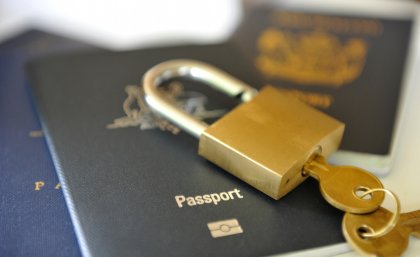
In a first for an Australian general election, when Queenslanders head to the polls on January 31 they’ll need more than loose change for the sausage sizzle and cake stalls – they now also need to bring proof of identity.
What passes for the right ID? Almost anything goes. The official list of acceptable voter ID to show at a polling booth includes:
- A current driver licence
- A current Australian passport
- A voter information letter issued by the Electoral Commission
- A recent document detailing electoral enrolment
- A government entitlement card
- A Medicare card, pensioner concession card, or repatriation health card
- An adult proof-of-age card
- A recent account or notice issued by a local government or public utility provider
- Account card
- Credit card
- A recent telephone bill
- Tax assessment notice
Whichever one of those you choose, the crucial change since the last state election is that voter ID is now a requirement. Failure to bring documentation could result in your inability to cast a vote, though provisions are being made for those without ID.
To clear up any confusion, it’s worth mentioning that nothing will change for Queenslanders when it comes to federal elections, where officials will continue to just ask the three questions before marking your name off the electoral list:
- What is your full name?
- Where do you live?
- Have you voted before in this election?
Why ask for ID?
Since passing the voter ID rules last year, as part of a suite of big changes to Queensland electoral laws, the state government has gone quiet on the issue. It has also had relatively little coverage in the media, meaning few Queenslanders even realise the rules have changed.
Late last week, an Electoral Commission Queensland spokesperson said that “no-one who turns up to vote without ID will be turned away” and that voter information letters will be posted out this week, ready to scan at polling booths as a fast form of proof of identity.
While Queensland is the only part of Australia to bring in ID rules for voting, the move brings it into line with many other countries. But in many of those places, it’s a measure that is meeting with growing scepticism.
In Canada, changes to its vouching provision – wherein one voter could “vouch” for another without identification – were controversial. More than 120,000 citizens were deemed likely to be adversely affected.
In the US, many people question the fairness of ID laws, particularly its effect on voter turnout. Evidence supports the fact that an ID requirement places a considerable burden on certain groups of people – the poor, homeless, First Nations citizens and the elderly – with little to no benefit.
As the ABC’s election analyst Antony Green puts it:
Voter ID is an answer trying to find a problem.
Eliminating voter fraud is the supposed problem. Yet in Australia, as well as in the US and Canada, fraud is rare and usually the result of confusion among elderly voters, or, in the US and more rarely, corruption among officials.
In any case, voter ID will not diminish the cases of people voting more than once. To eliminate multiple voting, a universal form of ID would need to be introduced and combined with electronic voting with e-lists at each polling station. Given the costs involved as well as privacy concerns (remember the Australia Card Bill attempt in the 1980s?) these measures are not likely to occur in the short term at least.
No ID, no vote? Not quite
After some prompting by lobby groups, the Queensland government introduced a safeguard for voters who forget their ID in the form of a declaratory vote. This will require voters without ID to cast a vote that will be placed in a sealed, named envelope and put in a separate ballot box. But what happens after that is unclear.
Many electoral commission staff are employed only casually during elections. Will they all have consistent training about the declaratory voting provisions? How will any inconsistency be identified and managed? Will people whose declaratory vote is deemed ineligible be advised of this?
There are other important questions to ask too. Will electoral commission staff be suitably qualified to answer questions from citizens with poor English language skills? Will this new measure increase queues for people waiting to cast a ballot, or lengthen the time of the final count?
Will people without ID – and the Australian Electoral Commission (AEC) has said in the past that this could be up to 1.5% of new enrolments – feel stigmatised?
As the AEC has concluded in the past, adopting voter ID would involve:
… significant start-up and on-going costs; voter inconvenience; possible disenfranchisement of a number of voters; and possible delays in the delivery of election results because of an increase in the level of declaration voting.
In Australia and internationally, the evidence supports the view that voter ID hinders citizen participation.
There is something bizarre in making voting compulsory and fining people who don’t vote, while at the same time making it harder for a citizen to cast a vote.
This article was originally published on The Conversation.
The views expressed in this article are not necessarily those of The University of Queensland.













